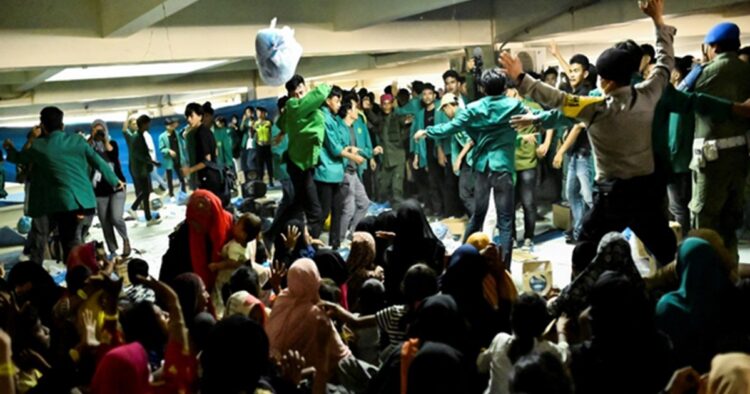In Indonesia, a group of students stormed a convention camp in Banda Aceh where Rohingya refugees from Myanmar were staying. The students demanded the deportation of the Rohingya refugees, who had sought shelter in the camp. The incident, captured on video, showed the students entering the basement where Rohingya men, women, and children were seated, causing distress among the refugees.
Following the intrusion, authorities removed the Rohingya refugees, some carrying their belongings in plastic sacks, and transported them to alternative shelters. The growing frustration among locals in Indonesia towards the increasing number of Rohingya boats arriving has led to heightened hostility and rejection of the ethnic minority. The Rohingya people face persecution in Myanmar, a Buddhist-majority country where they are denied citizenship and subjected to abuse.
Indonesian President Joko Widodo attributed the surge in arrivals to human trafficking and pledged to collaborate with international organizations to provide temporary shelter. The arrivals typically increase between November and April, with Rohingya taking boats to neighboring Thailand, Indonesia, and Malaysia during the calmer seas.
During a protest rally in Banda Aceh, a 23-year-old student named Wariza Anis Munandar called for the deportation of the Rohingya. Another 20-year-old student, Della Masrida, expressed the sentiment that the Rohingya refugees felt like they “came here uninvited” and “feel like it is their country,” as reported by CNN.
The United Nations High Commissioner for Refugees (UNHCR) in Indonesia did not immediately respond to the incident. Earlier in the month, UNHCR expressed alarm at reports of rejection in Indonesia. Despite not being a signatory to the 1951 United Nations Convention on Refugees, Indonesia has a history of taking in refugees if they arrive.
The plight of the Rohingya refugees highlights the challenges faced by displaced communities and the complexities surrounding their acceptance and integration into host countries. The incident underscores the need for international cooperation and understanding to address the humanitarian crisis faced by the Rohingya population.

















Comments